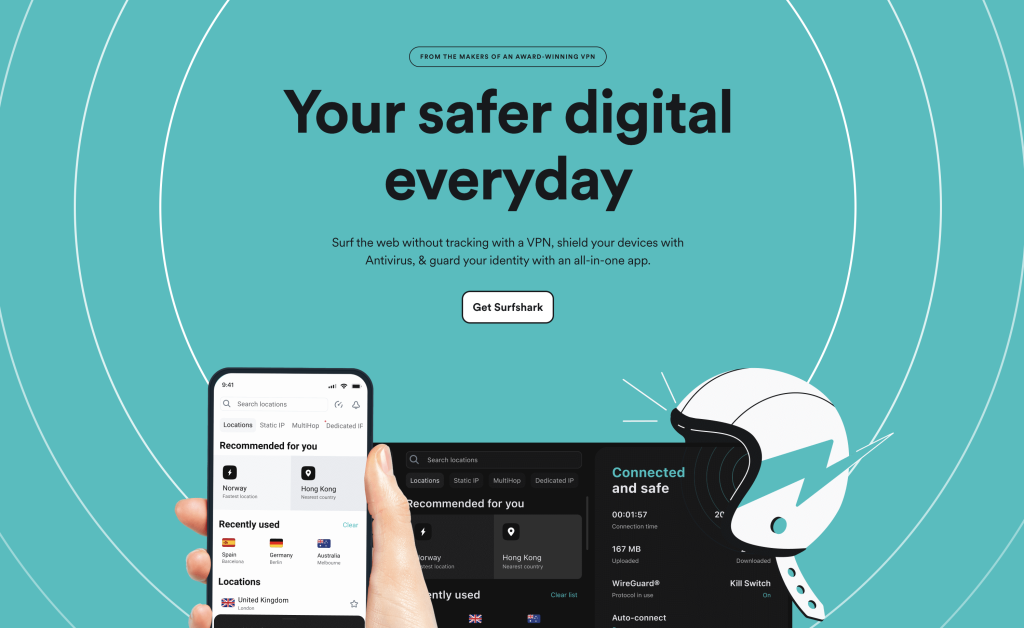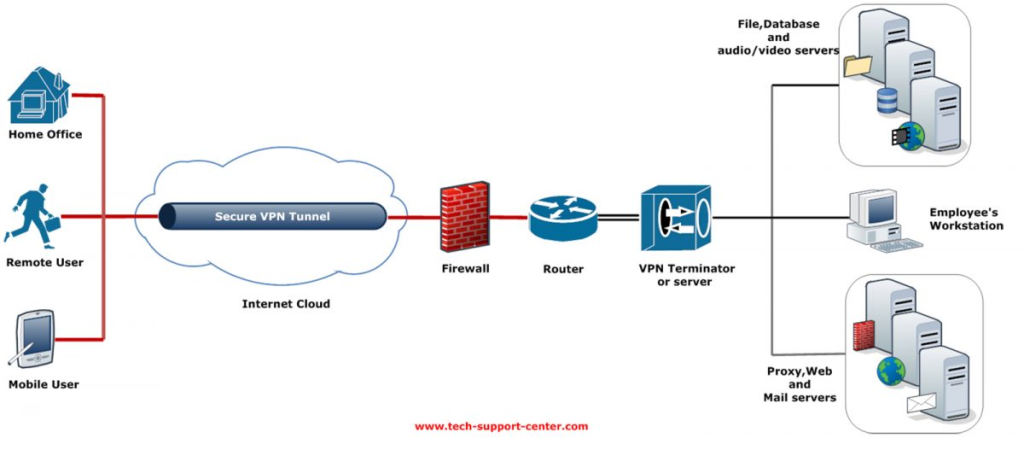VPN use has really taken off lately! More people are using them to keep their browsing secure and private. The VPN industry is booming – from $25 billion in 2019 up to a projected $77 billion by 2026. Businesses and individuals alike are turning to VPNs to encrypt their internet traffic and hide their identities online.
What is a VPN?

A virtual private network, or VPN, encrypts your internet traffic and sends it through secure servers. This hides what you’re doing online and where you’re located. It gives you more privacy and anonymity. Some VPNs like SurfShark offer dedicated IP addresses as an extra feature.
A dedicated IP address is a single IP address used by only one user. Instead of sharing an IP address with other people, a dedicated IP gives you exclusive use of that address. This has some potential benefits:
- Avoiding captchas and other bot-catching tests. Services may need to check who you are less often if you have a consistent IP address.
- Accessing content that is limited by location. Media companies sometimes restrict content based on what country you’re in. A dedicated IP can make it look like you’re somewhere else.
- Using services that block most VPN connections. Dedicated IPs may get around blanket VPN blocking.
- Keeping access to accounts that limit changing IPs. Some sites monitor and restrict frequently changing IP addresses.
Let’s understand how a VPN works and some of the benefits of using a VPN for your regular browsing.
How Does a VPN Work?
VPN creates a secure tunnel for your data when you go online. This tunnel scrambles your info so your internet company and others can’t see what you’re doing.
When you connect to a VPN, all the data leaving your device gets encrypted. That means it gets scrambled up into secret code. The scrambled info passes through your internet company to the VPN company. They have the keys to unscramble it.
The VPN company unscrambles your data and sends your request to the site or app. The response goes back through the tunnel, gets scrambled again, and reaches your device. So, a VPN wraps your data like a protected envelope. Your internet company only sees the envelope, not what’s inside.
Let me break it down so you can understand the process better.
- You try to visit a site or use an app.
- Your VPN scrambles your request before sending it.
- The scrambled data passes through without being read.
- The VPN unscrambles it and forwards your request.
- The response comes back, scrambled again.
- Only your VPN can unscramble the response for you to view
What Are The Main Benefits of Using a VPN?
Now that you have a basic understanding of VPNs, do you really need to use one? Let’s chat about the main benefits of using VPNs so you can decide if using one makes sense for you.
1. Secure Your Network

VPNs help hide your personal info from prying eyes. Hackers are always snooping around, but with a VPN, your online activity is secure and nameless. A VPN scrambles your sensitive details into garbled text that can’t be read. It’s like sending messages in a secret code that only you and the receiver can decipher.
2. Avoid Bandwidth Throttling
Do you know how some sites slow your browsing or downloads down based on IP? That’s no longer an issue when you use VPNs. When you connect to a site through a VPN, your original IP is completely hidden away and you visit the site as a different person on the internet.
And you can continue switching these identities as many times as you need. So you can completely avoid bandwidth throttling by different websites.
3. Access Geo-Blocked Services
Some services are notorious for restricting access to a few major countries like the US, UK, etc. If you’re not accessing the site from the country, you’ll be immediately geo-blocked stating that the service isn’t accessible from your country “yet”.
Switch to a VPN, select the country you want the IP address to be from, and voila! You now can use the service. That’s how a lot of people used Netflix in the initial days when it was limited to the USA.
4. Get a Dedicated IP
Dedicated IP addresses are quite useful. Especially when you’re running a business. You want to have full control over how your data travels on the internet, what services are accessed, and the IP reputation. While IP reputation does not seem like a big deal when you’re using it as an individual, it can be extremely important when a business needs to access the internet.
VPNs can give you secure and dedicated IP addresses for a much lower cost than traditional service providers. And even if you find a dedicated IP for cheap, you open yourself up to being tracked by prying hackers. You made it much easier for them by having only one IP.
With a VPN, you get the benefits and control of dedicated IP addresses without the security risks. These risks are absorbed by the VPN provider.
5. Bypass Geo-Restrictions
Some countries block specific content nationwide. For example, China blocks Google services and India blocked apps like Tiktok. However, if your business requires you to use these services, you can get around these restrictions using a VPN. However, before you proceed to access any sites blocked nationwide, check to ensure that it’s not illegal to do so. We would not like you to get into any trouble just for browsing the web!
Summary
VPNs are awesome tools in the right hands. They secure your connections and safeguard you from the prying eyes of hackers who’re always looking out for that “easy target” on the internet.
But they can also help you access content that isn’t accessible to the general public. And that’s where you have to be wary you’re not crossing the legal lines.
We hope this short article gave you a good idea of what a VPN is, how it works, and what are some of the benefits of using them. Take the time to pick a good VPN and give yourself that security boost with minimal effort!